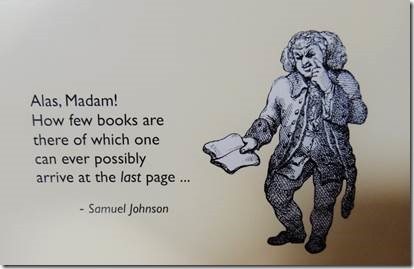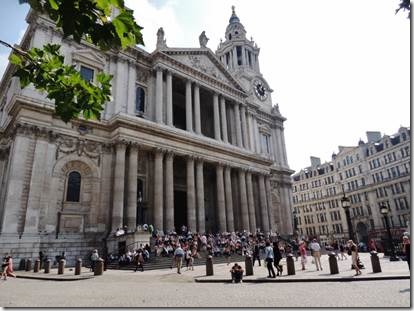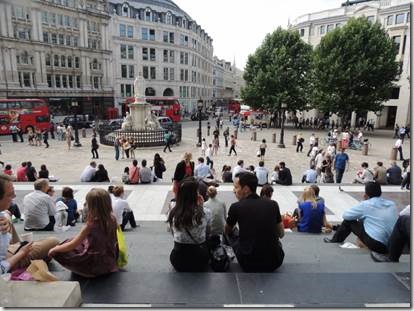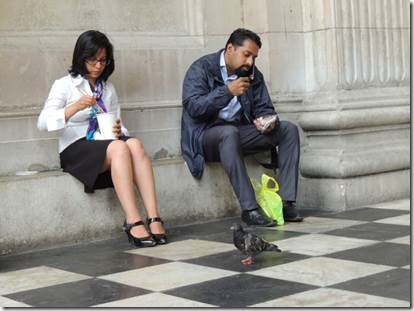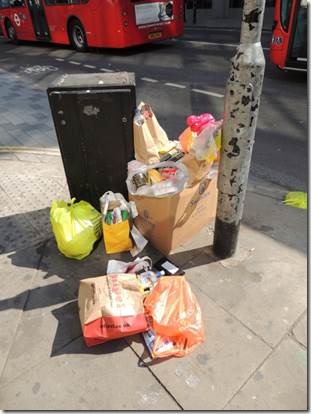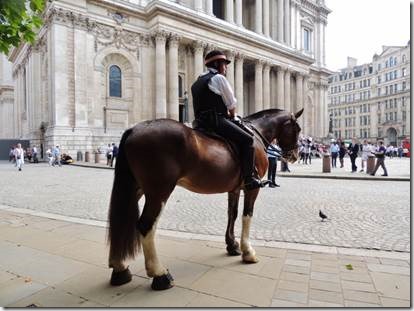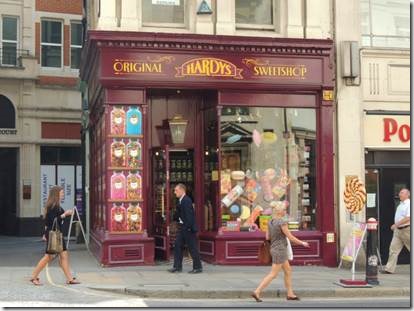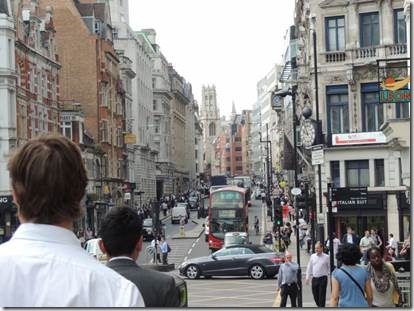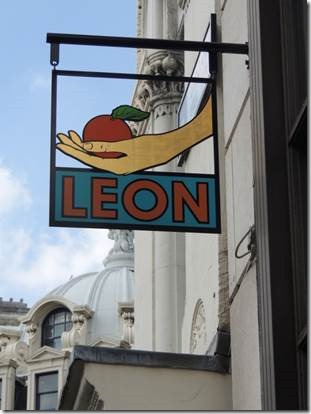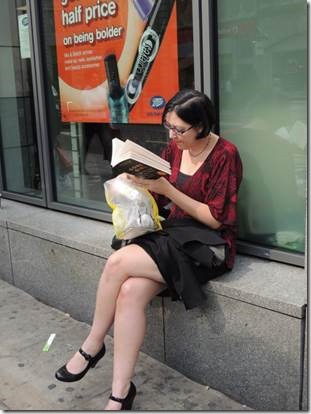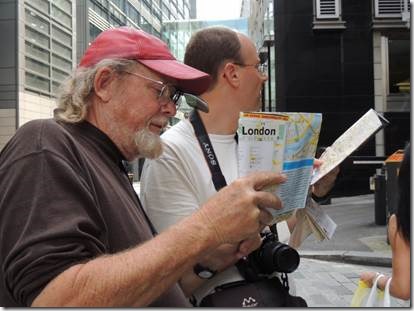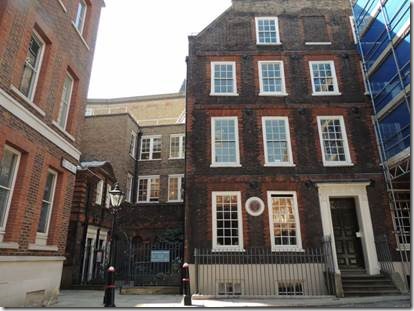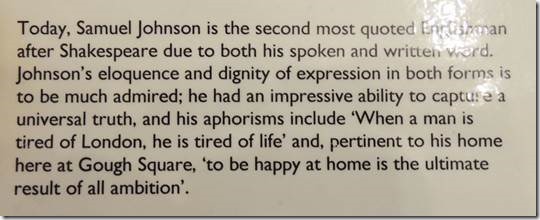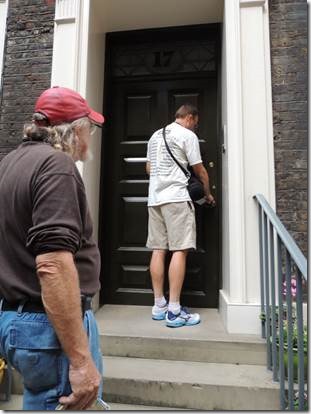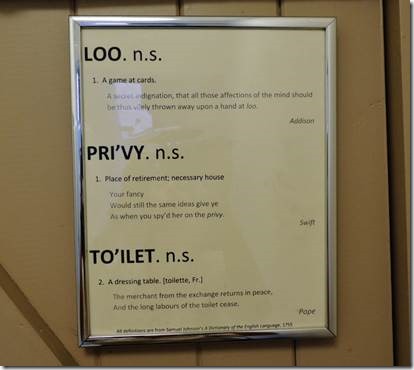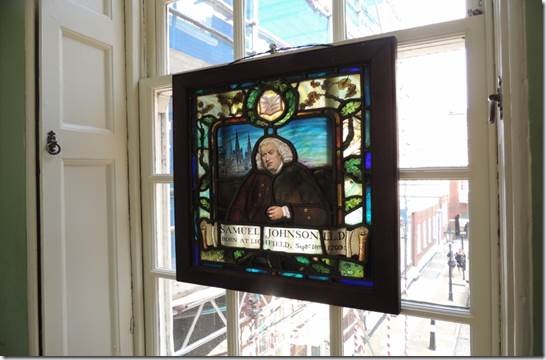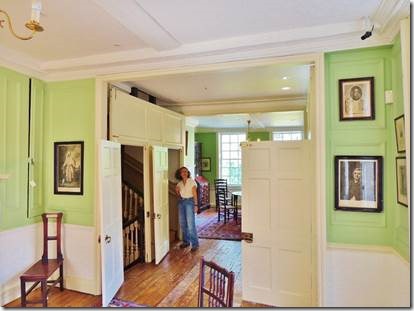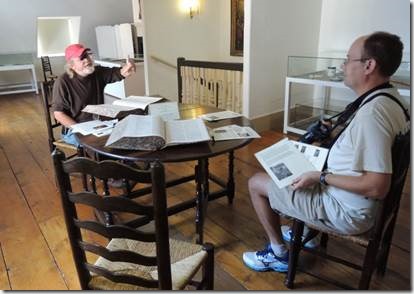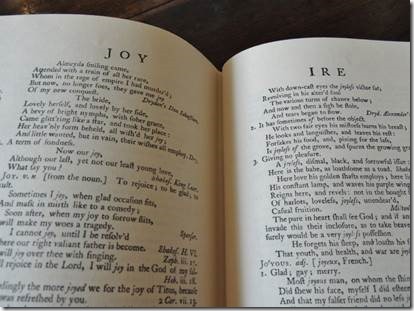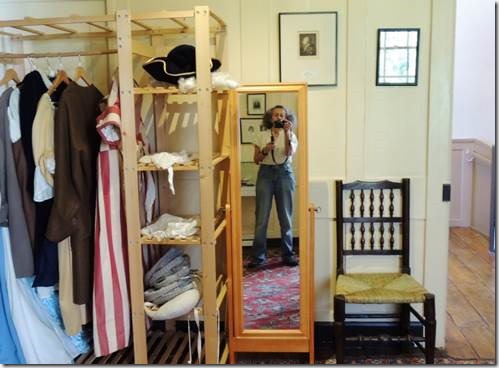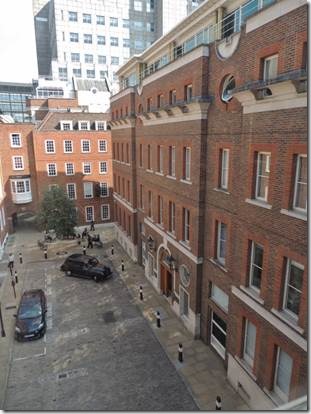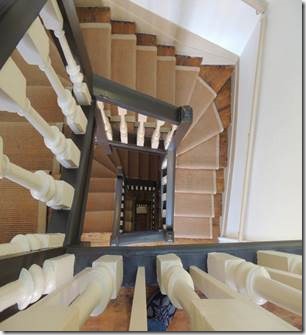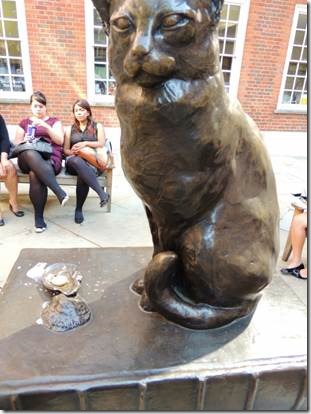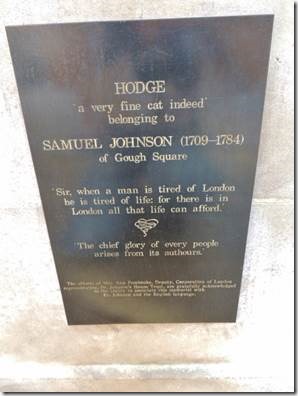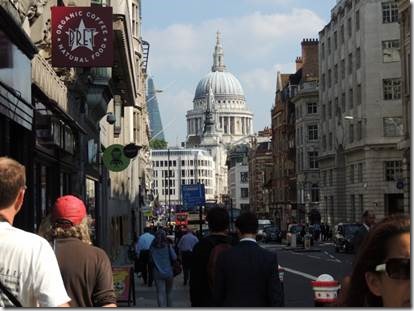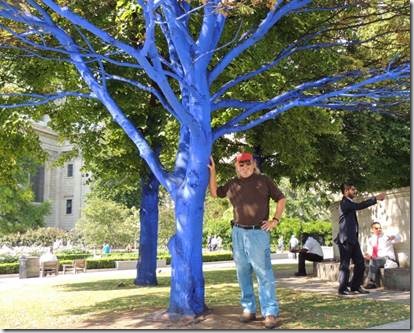Cheers,
Nice quiet day today. Started changing DoraMac from passage living to marina living; unpacking and cleaning. Everything that could possibly break had been packed away…I’m not exactly sure where at this point. I also took myself for a walk across Tower Bridge, along the Thames, back across London Bridge and then again along the Thames back to SKD. It’s a really good exercise loop and takes about 40 minutes if you don’t sight see or try to help someone find where she is going…as if I have a clue but I did have a map. Earlier today we also did some grocery shopping at the nearby Waitrose but prices there are ridiculous. We’ll find a better place to shop.
Charmaine and Linda, there’s a bird swimming around the marina that sounds as if it’s looking for its mom. It looks like a combination between a cormorant and a grouse; black with a white bit on its head. It’s heart wrenching to hear it. But as soon as you try to walk near where it’s swimming it runs across the water to go hide. Any ideas? I’ll try to get a photo.
Ru
Editorial Comment…
I don’t mind admitting ignorance of many things, though I am at times embarrassed at what I’ve forgotten about American history. I’m also embarrassed by not knowing things I think one should have learned if one has had a liberal education which I supposedly had during my 4.5 undergraduate years at the University of Massachusetts. So much of those 4.5 years is gone and forgotten and I graduated with a 3.2 average which was cum laude. English Literature, Science, Physical Education were all required as well as a major. And then there were electives. My major was American History with a focus on Gilded Age America; minor was Russian history starting with the Russian Revolution. I took Western Civilization because I had to but no courses in English history at all. Thankfully I went to Library School, earned a MLS and learned how to learn. So glad to be in a place that has LIBRARIES!!!!
Why am I telling you this? Blame it on John who wanted to visit Samuel Johnson’s house.
Samuel Johnson is one of those historic characters one should learn about at some point to consider oneself “educated.” I’m not sure at this point I would consider myself educated, but I now know a bit about Samuel Johnson having visited his home in London.
I agree !
But first, lunch at St. Paul’s Cathedral
Lunch was along the way, the way real Londoners eat lunch; takeaway eaten on the steps of St. Paul’s.
|
St Paul’s http://www.stpauls.co.uk/ John says no photos allowed inside so if you want to see that you’ll have to look at the website. We’ll visit it one day. Great place for lunch! |
|
Even chopsticks on the patio. Lots of pigeons too though there’s only one in this photo. We selected our picnic from Marks & Spencer fast food, just across the way; was quite good : there were at least 100 people in there selecting their choices and then going through one of the many pay lines. I unfortunately picked one of the self-check-out lines and had no clue. Luckily there was a helper who picked out the correct coins and showed me how to feed them to the machine. After lunch. You could probably do some kind of survey as to what are the most popular takeaway places near St. Paul’s. |
|
Not a fake horse, which arrived with a second mounted police just as we were leaving. |
|
Along the way there was lots to see of London life. |
|
Will have to try this sometime! http://gourmet-girl.tumblr.com/post/11944554560/hardys-original-sweet-shop |
|
London Street Scene |
|
I liked the sign and the woman READING. I think she’s wearing the same shoes as the woman having lunch at St. Pauls. http://www.leonrestaurants.co.uk/ is this interesting restaurant’s website. http://www.theguardian.com/ is a review of Gone Girl by Gillian Flynn which this woman is reading. She seems engrossed in it so maybe that’s a recommendation. |
|
A frequent scene, Randal and John trying to figure out how to get where we’re going; but we’re close! |
|
Samuel Johnson’s House…very tall “most quoted Englishman after Shakespeare..” |
|
You have to ring the bell to get in. |
|
My first stop as defined by Samuel Johnson |
|
“In 1737, Johnson moved to London where he struggled to support himself through journalism, writing on a huge variety of subjects. He gradually acquired a literary reputation and in 1747 a syndicate of printers commissioned him to compile his ‘Dictionary of the English Language’. The task took eight years, and Johnson employed six assistants, all of them working in his house off Fleet Street. The dictionary was published on 15 April 1755. It was not the first such dictionary, but was certainly the most important at that time. In Johnson’s lifetime five further editions were published, and a sixth came out when he died.” http://www.bbc.co.uk/history/historic_figures/johnson_samuel.shtml |
|
Randal was fascinated by these moveable walls that could turn the space in the middle of the two rooms into 3 rooms. Reminded me of Thomas Jefferson’s innovations. |
|
Facsimile copies of Samuel Johnson’s dictionary |
|
Leave it to me to find where the books had been bound incorrectly…. |
|
There I am |
|
Looking out the window and back down the stairs |
|
Court year outside the home; statue to Johnson’s cat with a £ sitting there too in the mussel shell. Not sure why the £ is there as it doesn’t look part of the sculpture. |
|
Walking home where we will pass by St Paul’s again Blue trees and Red Hat http://www.kondimopoulos.com/2011/11/blue-trees/ This environmental art installation was commissioned by Trees for Cities and sponsored by Bloomberg. As a sculptor, performance and installation artist, I create artworks that are grounded in my sociological and humanist philosophies. In my environmental installation, The Blue Trees, the colour and the Tree come together to transform and affect each other; the colour changing the Tree into something surreal, something out of this world. While the Tree, rooted in this earth reflects what we may lose. This change is important not only as a means to highlight ecological issues, such as the ecocide of our forests, but also that it may effect a transformation in the psyche of people by raising our social consciousness. With The Blue Trees, the colour and the Tree become a sculptural work referencing people’s lives, their daily existence and how individually and collectively we shape the world we inhabit. I have always known that art is and has always has been an extended part of nature and that art can effect social change. For that to happen one has to move out of the art institutions and galleries and move outside among nature and human beings in their living spaces. I think of the Blue Trees as a project that has a strong regenerative aspect to it, an organic artwork that is continually changing and evolving from site to site. From season to season the trees grow through the cycles of nature and the colors also begin to change and disappear. There is a sense of time as a part of the concept. Time that determines our own existence is measured through these trees.” |

